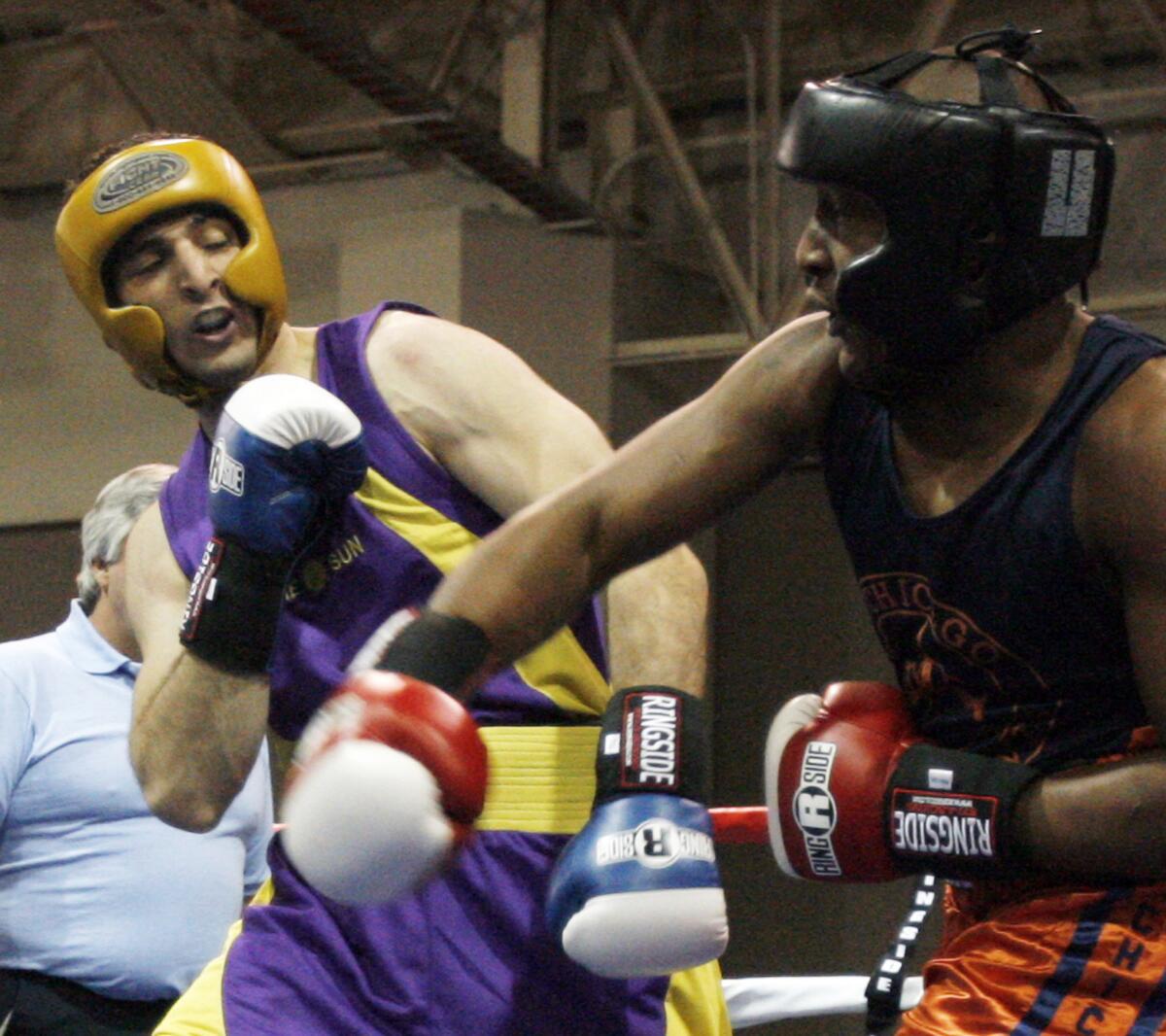Boston bombings: Don’t blame boxing

- Share via
As details have begun to flow about the lives of the Tsarnaev brothers, the media and the public have seized on some obvious bullet points: that the perpetrators were Muslims; that they were of Chechen descent; that they seemed alienated (one of the brothers allegedly said he “didn’t understand America.”) There’s one detail about the life of Tamerlan Tsarnaev, though, that I hope doesn’t get blamed for his later actions.
Tamerlan, who died in a gun battle with police Friday morning, trained as a boxer, sometimes at a local fight gym called Wai Kru, which has two locations in the Boston area. I trained at Wai Kru too.
I started in boxing and mixed martial arts years ago, and have spent countless hours at gyms in Los Angeles, Las Vegas, Washington, New York and in Boston, where I’m a grad student at the Harvard Kennedy School of Government. I know there are people who see this kind of organized fighting as barbaric and senselessly violent.
FULL COVERAGE: Boston Marathon attack
But time and again I have come into contact with former convicts and juvenile delinquents who say that if it weren’t for the home provided by the gym, and the self-discipline it teaches, they would be incapable of staying on the right side of the law.
Through personal experience, I’ve come to see training in combat sports as a form of therapy, wherein people who are deeply and particularly damaged find effective treatment. Fighters internalize with their own bodies the consequences of trauma, violence and pain; they train with friends and teammates whom they care deeply about, realizing in the process that destructive tendencies have a tangible impact on good people.
What is more, fighting is one of the few slices of life that is actually fair; unlike the world generally or most other sports specifically, fighting is honest meritocracy. In mixed martial arts, we have only a few basic rules (no hair-pulling, no biting, no blows to the back of the head). Traditional boxing features a few more regulations, obviously, but the bottom line is that a fight is an honest competition, it’s an honest interaction. The only hierarchy in the gym is one of proven talent. The color of your skin, the vowels in your last name, your parent’s wealth or the prestige of your alma mater don’t register in the gym. All that matters is that you are willing to engage in physical and difficult work while pushing yourself and your fellow fighters in a positive and healthy manner.
The fight gym is a democratic environment where unexpected friendships are grounded in a shared and important experience. They are the exact spaces where a confused son of immigrant parents might voluntarily wander in, looking for company in a world that feels unjustly harsh and hostile. A gym, when run correctly, is not a place one goes to inflict or receive pain and suffering. It is rather a place to discover companionship in an organized environment. A good gym is a simulated pressure valve, a place for people to discover that they possess the ability to cope with stress and to learn how to use grit and determination to turn even the worst situations into opportunities.
I’m not the only one who believes this. In London, a former professional fighter, Usman Raja, uses combat sports as a means to rehabilitate former Islamic radicals, breaking his students out of their destructive ideologies and rebuilding them as responsible and competent members of society. His program is showing promising enough results that Britain’s Probation Service’s Central Extremism Unit, the arm of the government charged with supervising former terrorist convicts, now works directly with Raja.
Combat gyms are not symptoms of a problem; rather, they are a powerful tool for diagnosing and treating a social disease. So as every detail of Tamerlan Tsarnaev’s short life is analyzed over the coming weeks, don’t presume that his boxing contributed to the acts of violence he is suspected of committing. In fact, I think it’s possible that if he’d spent more time at Wai Kru, any violent acts he may have committed might not have happened at all.
Sacha Feinman is a graduate student at the Harvard Kennedy School of Government in Cambridge, Mass.
More to Read
A cure for the common opinion
Get thought-provoking perspectives with our weekly newsletter.
You may occasionally receive promotional content from the Los Angeles Times.





